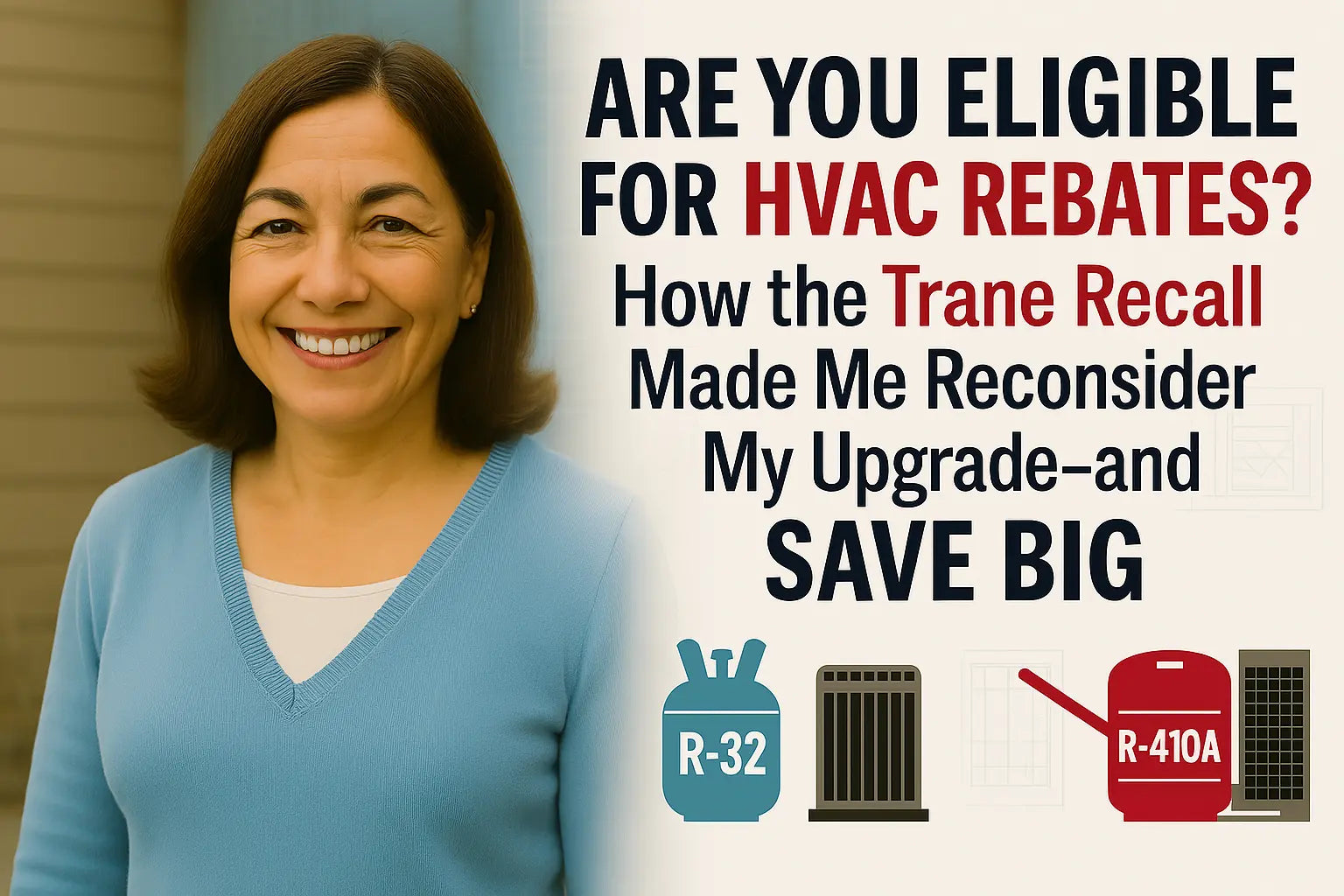When the Trane Recall Hit, I Knew It Was Time to Rethink My HVAC 🛑🔥
Hey, it’s Samantha. Let me be real: when I first heard about the Trane recall involving tens of thousands of gas/electric packaged units with a fire hazard risk, I panicked.
That recall was more than just headlines. It was a red flag that even big brands can have dangerous design flaws—specifically faulty wiring inside the heat exchanger compartment causing fire risks.
If that could happen to Trane, could it happen to me?
My system was still running on R-410A refrigerant, and with the recall fresh in my mind, I wondered: Is my system safe? And if not, what’s my best and safest next step?
The Trane Recall Sparked a Wave of Upgrades to Safer, Smarter Systems
That recall didn’t just disrupt Trane owners. It shook the entire HVAC community—and smart homeowners everywhere started considering safer alternatives.
One clear answer? Moving away from older refrigerants like R-410A to the newer, safer R-32 refrigerant, paired with high-efficiency gas furnaces designed with modern safety features.
These systems aren’t just about energy efficiency—they’re about avoiding the kind of costly, dangerous recalls like the one Trane faced.
Rebates Made My Safety Upgrade Possible (And You Can Too!) 💸
Now here’s the kicker: A safer HVAC upgrade can seem expensive upfront. But thanks to generous rebates and tax credits, my wallet didn’t have to take the hit I feared.
The federal government’s Inflation Reduction Act offers a 30% tax credit on energy-efficient HVAC installations, including R-32 AC systems and 95%+ AFUE gas furnaces. You can see all the details in the IRS’s Energy Efficient Home Improvement Credit info.
Plus, local utilities and states offer rebates to encourage homeowners to upgrade away from risky, older units like the recalled Trane models.
I used the Energy Star Rebate Finder and DSIRE to find all available incentives near me.
How the Trane Recall Pushed Me to Take These Steps
After verifying my system wasn’t on the recall list (whew), I decided:
-
To ditch R-410A and switch to an R-32 AC system
-
To pair it with a high-efficiency, sealed combustion gas furnace
-
To work with a dealer who could help me apply for all available rebates
That combo meant not just better safety, but better performance—and rebates helped make the upgrade affordable.
What You Need to Know About Rebates Post-Trane Recall
If you’re upgrading because of recall worries like I was, here’s what’s important:
-
Only ENERGY STAR-certified systems qualify, so look for R-32 ACs and gas furnaces that meet those specs.
-
Rebates vary, but combined AC + furnace purchases usually get bigger incentives, encouraging you to replace both safely at once (because mismatched systems can cause electrical or performance issues).
-
Installations by licensed pros are a must to qualify for rebates. Don’t skimp here.
Why I Trust the Goodman R-32 Systems from The Furnace Outlet
I chose Goodman’s R-32 AC and 96% AFUE gas furnace combo because:
-
They meet all ENERGY STAR requirements for rebate eligibility
-
They use R-32 refrigerant—lower GWP, safer, and more efficient
-
They have advanced safety features like overheat sensors and sealed combustion
-
The dealer helped me with rebate paperwork, making the process seamless
If you want to avoid the kind of issues the Trane recall exposed, this is the kind of system to look for.
Don’t Wait for a Recall to Act—Upgrade Smart, Upgrade Safe
The Trane recall was a scary reminder that waiting until a safety issue surfaces is risky.
Upgrading proactively to an R-32 AC and gas furnace combo, backed by rebates, means you’re protecting your home, family, and budget—without the fear of surprise recalls or dangerous malfunctions.
Samantha’s Final Word
Recalls like Trane’s shake confidence, but they can also spark smart choices.
I turned that fear into action and savings. You can too.
Start by checking if your unit is recalled, then explore rebate-eligible R-32 and gas furnace systems at The Furnace Outlet.
Want more safety tips about these systems due to the Trane recall? Visit my guide right here!
Don’t just hope your system is safe—know it.
- Samantha, Home Comfort Advisor







